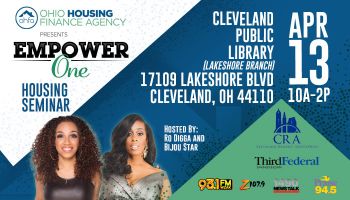Love is …
Love ain’t …
What is love?
By Dr. James C. Wadley
Marriage, Family, and Sexuality Therapist
As a marriage, family, and sexuality therapist, I have had the opportunity to interact with couples, families, and individuals from all walks of life who maintain various beliefs about relationships. Perhaps the most frequent and compelling conversation that emerges in my private practice and work in the community is how people define what love is and what it means to them. Oftentimes in couple’s therapy, one of the individuals will pause and look around as if gathering his or her thoughts about how to define a concept previously taken for granted. Eventually, one of the two individuals will shout out a phrase and their partner will chime in with their thoughts about what they believe love REALLY is.
Along the same lines, I recently conducted a workshop at a local university about the dynamics that exist in a loving relationship. The participants in the workshop came up with myriad ways to define “love” and the types of relationships that they wanted to have with their partners. Here are some of their responses about what love is:
§ “A commitment to someone”
§ “Doing things for people that you don’t do for everyone else”
§ “A strong feeling that you have for another person”
§ “Wanting to spend a lot of time with the person”
§ “The feeling you get before you reach orgasm during sex”
§ “The butterflies I get when I am around the person”
§ “The peace I feel when I think about spending time with my husband”
Like the couples who I see in my practice, the participants in the workshop spent a great deal of time talking about how love is received and manifested and how it is a product of our families, cultures, and personalities. We discussed how the people around us (i.e. parents, friends, co-workers, etc.) help shape our beliefs and attitudes about what love is, how we love ourselves, and how we love others.
>From my professional experience in meeting with couples, families, and individuals, I have found that love involves intimacy, passion, commitment, and patience.
Intimacy is how we relate, communicate, and express ourselves physically, emotionally, intellectually, spiritually, and sexually to our partners. Taking time to get to know our individual needs and desires and then sharing our concerns and issues with our partners gives the relationship an opportunity to grow in a healthy way. Intimacy refers to how a person demonstrates “closeness” when he/she is with his or her partner. For my couples, I will typically ask them to do an exercise where they are asked to clarify and articulate their own values about touching/affection, communication styles (i.e. talk/not talk; use of body language and gestures), assertiveness, initiation, and sexual expression. As the couples reveal their likes/dislikes, challenges/strengths, and values about the ways they are intimate with one another, they discover that many of their issues have gone unresolved because they (1) didn’t take the time to find out their partner’s beliefs/attitudes an d/or (2) they didn’t have the “tools” (i.e. use of reflective listening, empathy, acknowledgement of differences, etc.) to effectively express themselves to one another.
Intimacy comes from holding a partner’s hand, giving each other bubble baths, caressing each other’s hair, watching television together, walking in the park together, eating together, reading a favorite book and sharing ideas, going shopping together, sitting quietly together in the living room, attending a church together, etc. Quality time (QT) is a term that many people use in order to signify the amount of time and intimacy that is present in a relationship. Using QT to get to know our partners on an intimate level is needed for a loving relationship.
<P style=”MARGIN:
What Is Love? By Dr. James was originally published on blackdoctor.org














